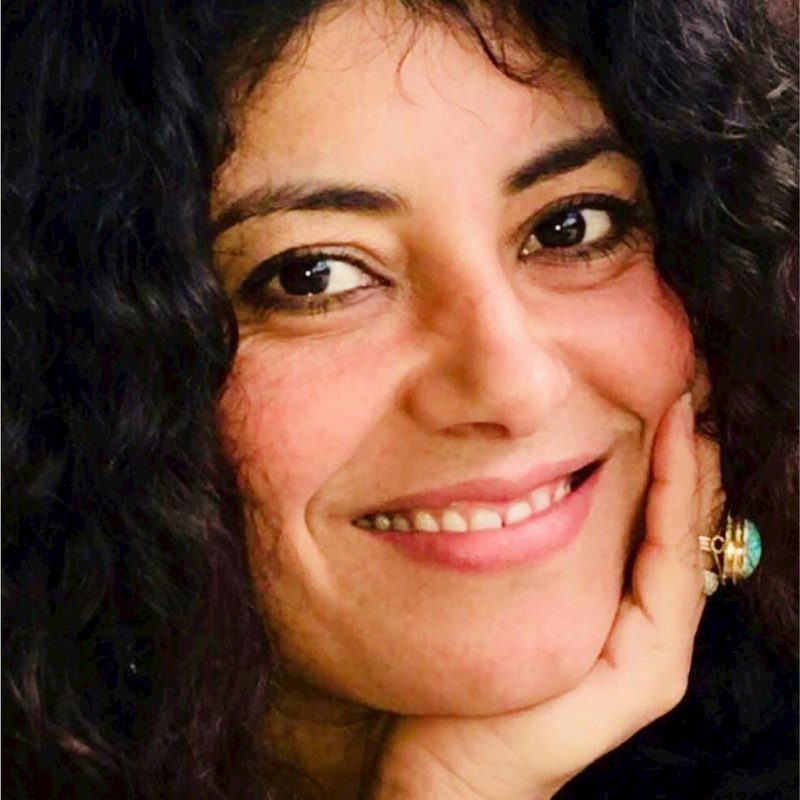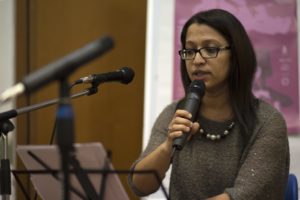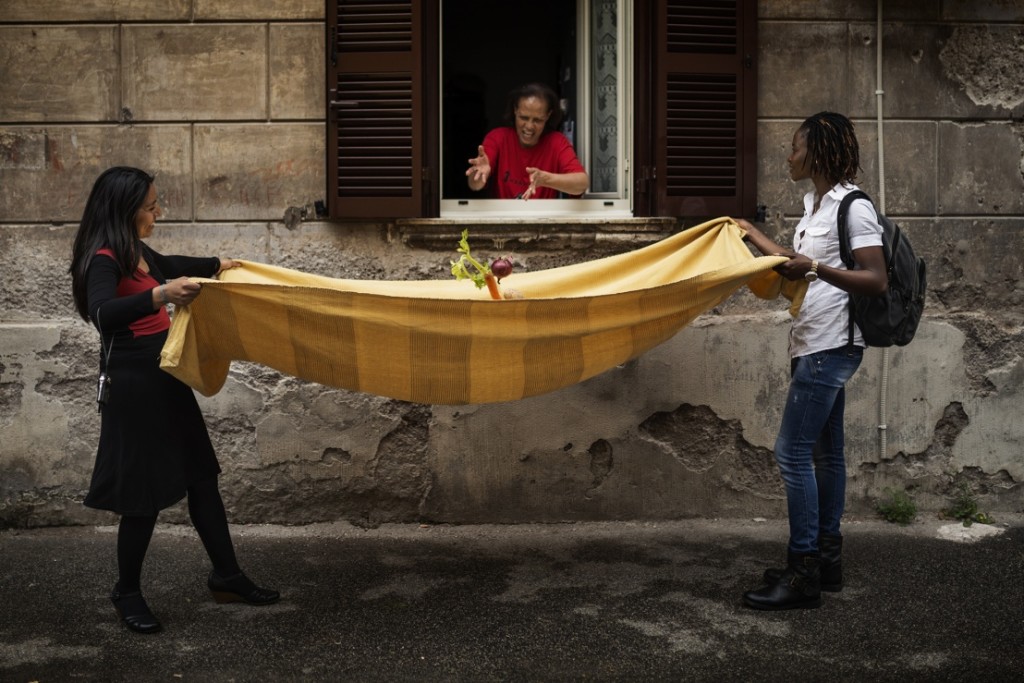These three excerpts are from Sana Darghmouni’s Italian translation Poesie della cecità, emuse 2024, of the Arabic original. The English translation is by Pina Piccolo. Cover art is by Marta Abbott, The silver light, view from the moon.
[…]
If you are blind, can you hear?
The author of the book I have in my hands says that the senses are connected to each other like ribs and that there is no real benefit in one sense living apart from the other. She also says: to write visual poems you don’t have to look at things with your eyes, or even with your heart. True vision is when things see you and offer you their hand.
So why then does blindness start now? We are all born blind. This title is misleading. The real title should be: We are all born with nausea.
The author of these pages says: blindness starts with the ear. An ear that doesn’t hear will be the first step towards darkness.
I put the book down, pat my face dry with my hand, dust is everywhere, the cat’s bowl is empty, the windows are fogged up, the clothes are piled up in the hallway. Tiredness always finds me, sees me and holds out its hand. Come on, weariness, sit here on this lap and relax.
Whose hands are those clutching my dress? I don’t think they belong to trees or rivers, I don’t even think they could be hyenas’ hands. I have written a lot about trees and rivers in previous poems. I will not turn this text into a paradise or a cemetery. This text is the blind man’s mirror. If I could paint, I would lie down on a bed with a mirror on the ceiling and draw my eyes from all directions, filled with light and shadow. Writing is something different. Writing is nakedness. If I continued like this I might break the bone behind my pupil and turn it into a stool.
Who owns your book? My book has no owner, a blind person’s foot wrote it and darkness spread across the earth
[…]
You’ll always find someone ready to talk to you about life
love
friendship
but no one will tell you
about the foreigner who lives across the street
about his nocturnal movements
about his shadows reflected on your hands and your spoon
no one will explain to you why you feel loneliness
and are on the verge of tears
when his lights go out
[…]
In everyone’s home, there is a woman standing at the window,
she resembles every woman who opens her front door and comes in,
picking up letters from the floor,
placing them on the table and then proceeding to water the plants,
she also resembles every woman
who runs away from something chasing her
and wakes up terrified in a dream
the woman at our window has no name by which humans
can call her
nor a specific attribute
that was the reflection
of a remote light, in the past,
and over time has become
a crack the full length of the glass

Lamia Makaddam is a Tunisian poet. She studied Arabic language and literature at the University of Sousse before moving to the Netherlands. She has published several poetry collections in Arabic: Winter fruit tasting (2009), This poem is over, this love is over (2016), You will find me in every word I write (2019). Her latest collection, The Book of the Body ( 2024) was published within the Ishrakat series , directed by the poet Adonis . In 2000 she received the Al Hizjra literary prize. Her works are translated into English, French, Dutch, Italian and Kurdish.

Sana Darghmouni has worked with several Italian universities as an instructor of Arabic language and literature and is currently teaching at the University of Bologna. She has translated and published numerous poetry collections, works of fiction and essays into Italian and Arabic. She was co-translator of The wisdom of the condemned man and other poems by Mahmoud Darwish (2022) and Don’t apologize for what you have done, by the same author (Crocetti, 2024).





















































